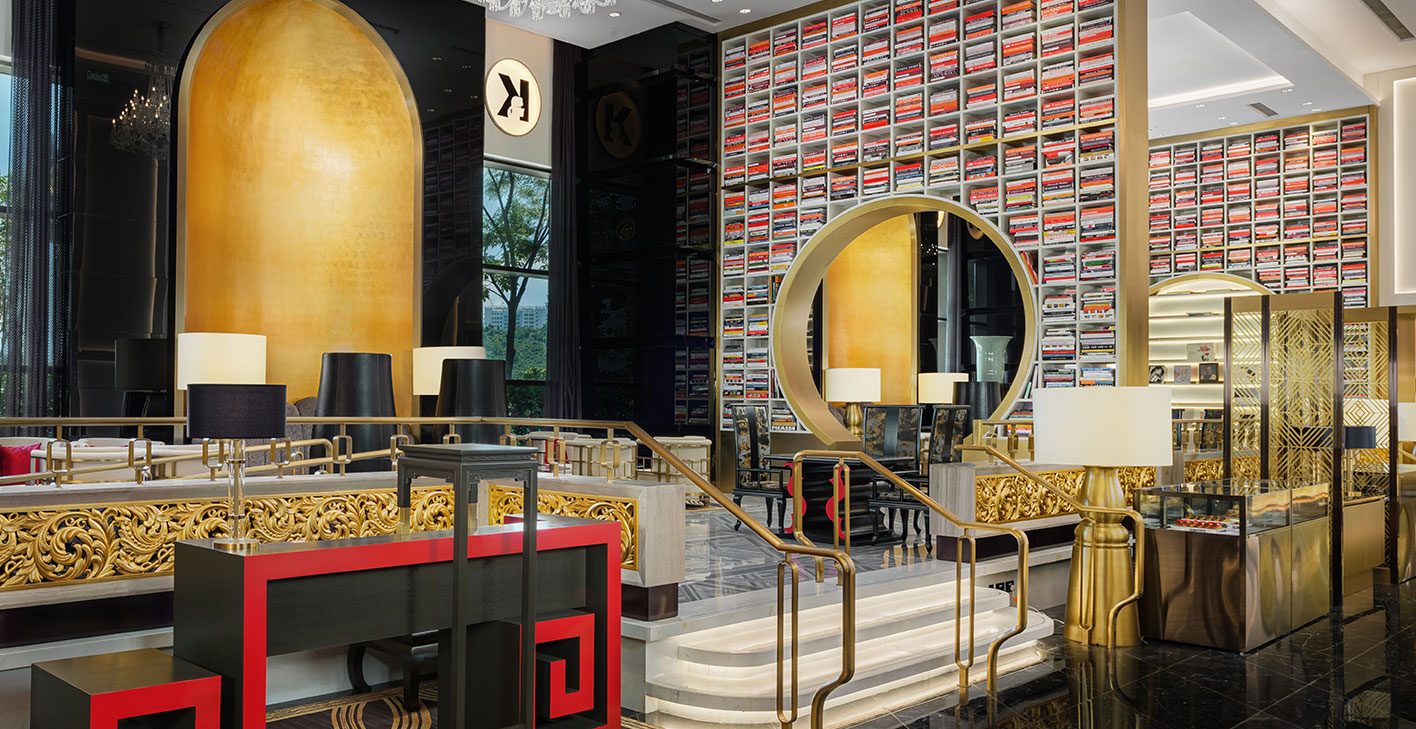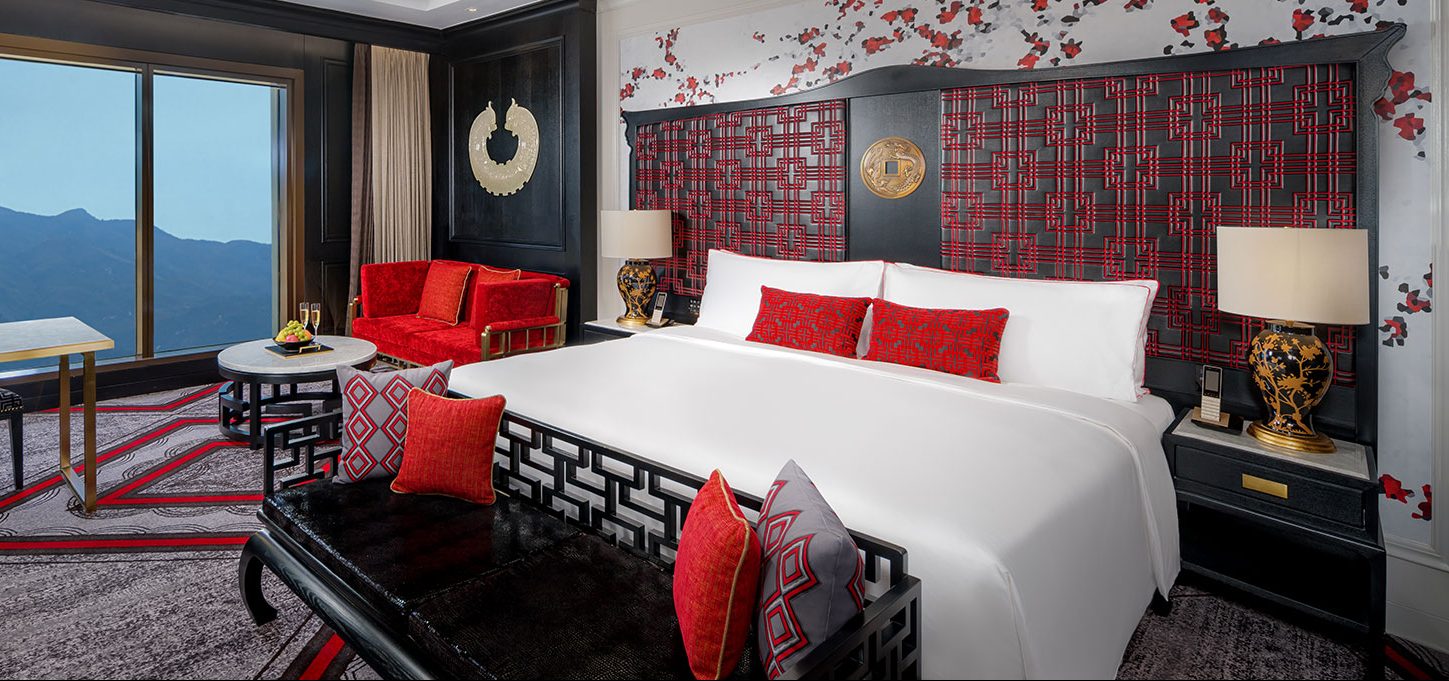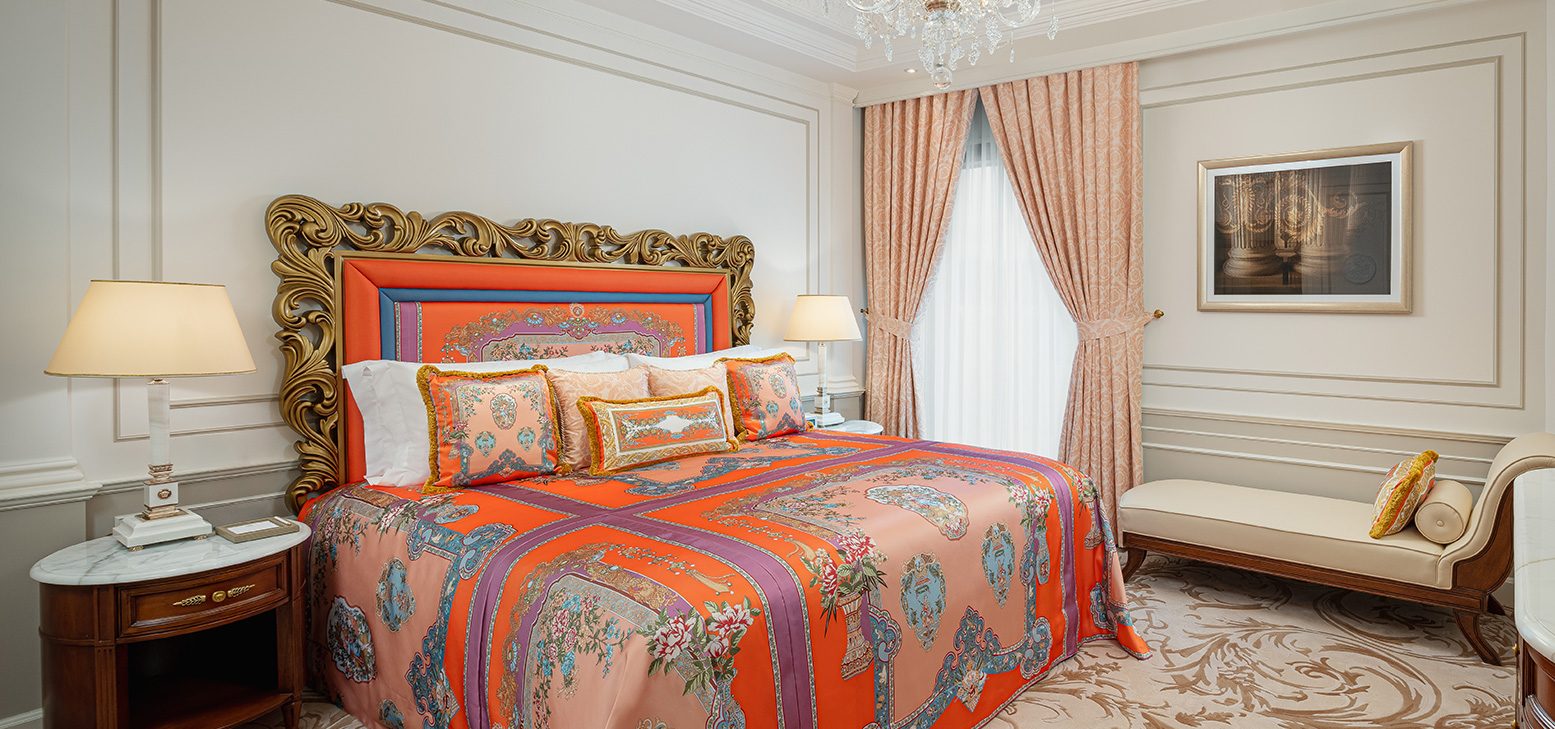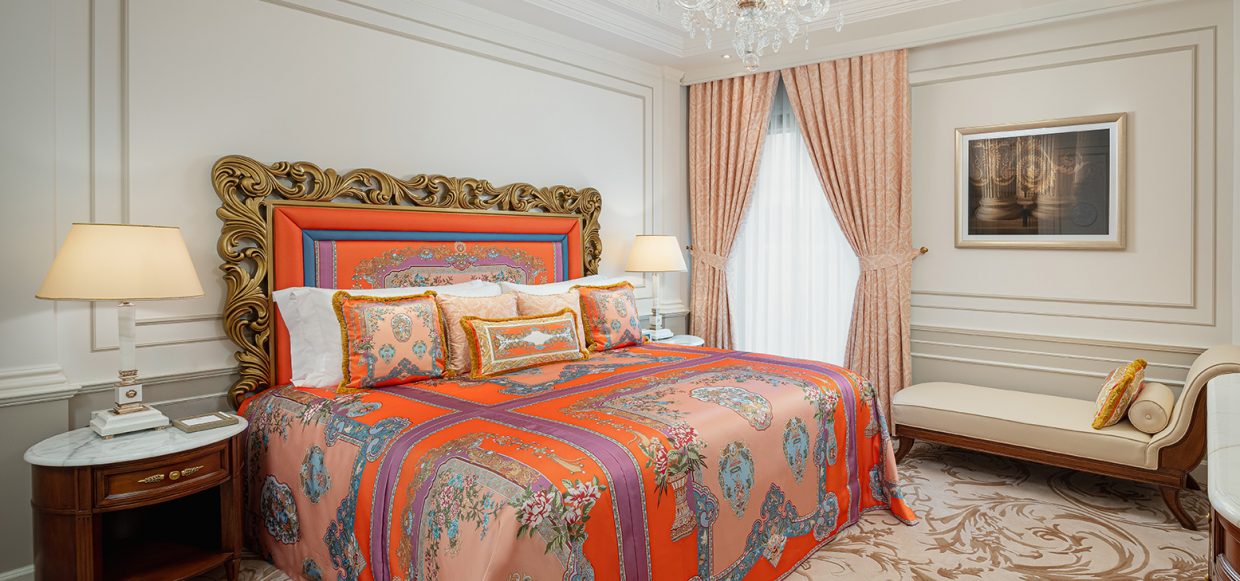Following a Karl Lagerfeld-themed Met Gala — where the world’s biggest stars dazzled in black and white, and even paid tribute to Lagerfeld’s beloved pet cat — fans of the late designer can now experience his legacy in a new way.
In June this year, the Karl Lagerfeld brand will officially open the doors of its first luxury hotel in Macau. Originally scheduled to launch in 2018 but delayed due to the pandemic, the hotel was the last design project undertaken by the former creative director of Chanel and Fendi before his death in 2019.
The five-star hotel will be part of the Grand Lisboa Palace, a sprawling luxury complex owned by the family of Macau’s late casino magnate Stanley Ho, which launched in 2021 on the Cotai Strip. The Karl Lagerfeld hotel tower features 271 rooms, a restaurant run by renowned Portuguese chef José Avillez, a spa and wellness center, an indoor swimming pool, and a Baroque-style outdoor garden that embodies the opulence of Macau.

The Book Lounge at the Karl Lagerfeld Macau hotel is designed after the late designer’s study in his Paris mansion. Photo: Grand Lisboa Palace Resort Macau
The Karl Lagerfeld Macau mixes and matches Chinese elements with contemporary Western touches. Cherry blossoms decorate the walls in the Klassik room, complementing the red and gold furniture, while custom headboards take inspiration from auspicious Chinese coins. In the Createur suite, circular room dividers pay homage to traditional Chinese moon gates and contrast with the Grisaille wall coverings and carpet.

The Klassik room blends Chinese and Western aesthetics. Photo: Karl Lagerfeld Macau
“You know, Gabrielle Chanel always said, ‘I only make dresses I would wear.’ And I make only rooms where I would like to sleep. It’s as simple as that,” Lagerfeld stated in an interview in 2014.
It’s not that surprising that the fashion house chose Macau as its first stop. The special administrative region is one of the world’s biggest gambling and high-end shopping destinations; the shopping mall at the Grand Lisboa Palace alone offers more than 100 fashion and lifestyle brands, including Cartier, Dior, and Valentino. Conveniently located near other Asian hubs and offering a unique blend of Portuguese and Chinese culture, Macau is steadily recovering from the pandemic; in the first quarter of this year, it welcomed almost 5 million arrivals, about 45 percent of 2019’s level.
“Compared to a hotel launch in [mainland] China, both Hong Kong or Macau are comparably easier destinations to ‘test’ something of this magnitude,” says Humphrey Ho, managing partner of Hylink Group, Americas, an integrated marketing agency that works with travel and luxury brands. “Karl Lagerfeld’s approach is probably more about the growth in leisure tourism industries in Macau, and coupled with their late entry in 2013 into the Chinese market, [the hotel] likely appeals to a nouveau-riche segment that frequents Macau and local destinations in Asia.”
Karl Lagerfeld follows in the footsteps of other fashion brands that have ventured into the hospitality sector via hotels, spas, and restaurants. Bulgari, for example, opened a hotel in Beijing in 2017, and one in Shanghai the following year. More recently, the Palazzo Versace Macau opened for bookings in April, bringing its signature prints and splashy colors to the Grand Lisboa Palace.
As Gian Giacomo Ferraris, the chief executive office of Versace, said in a statement: “Palazzo Versace will enrich Macau with a unique property aiming to provide an exclusive experience and become a destination within a destination.”

Palazzo Versace Macau features furnishings from the Versace Home Collection. Photo: Grand Lisboa Palace Resort Macau
Essentially, the hotel trend is about taking branded experiences to the next level — offering consumers more than what a simple retail or pop-up store can.
“If we look at the Bulgari hotel, or other successful properties, what we see is not only a presentation of products and services at the hotel, but it brings the lifestyle and brand identity to life through all the senses,” Ho tells Jing Daily. “Not to mention the price premium that the room night brings in the area, which (using Bulgari Hotel London as an example) can be twice the room night of a similar five-star hotel in the same area.”
From stunning architecture, to hand-picked interiors and haute cuisine, brands have an opportunity to communicate their values on all fronts through hotels and deepen their relationship with local consumers.
That said, Macau is known for being over the top — it’s not nicknamed the “Vegas of Asia” for nothing. With glitz and glamor being the standard, Karl Lagerfeld and Versace will still have to compete for attention.
